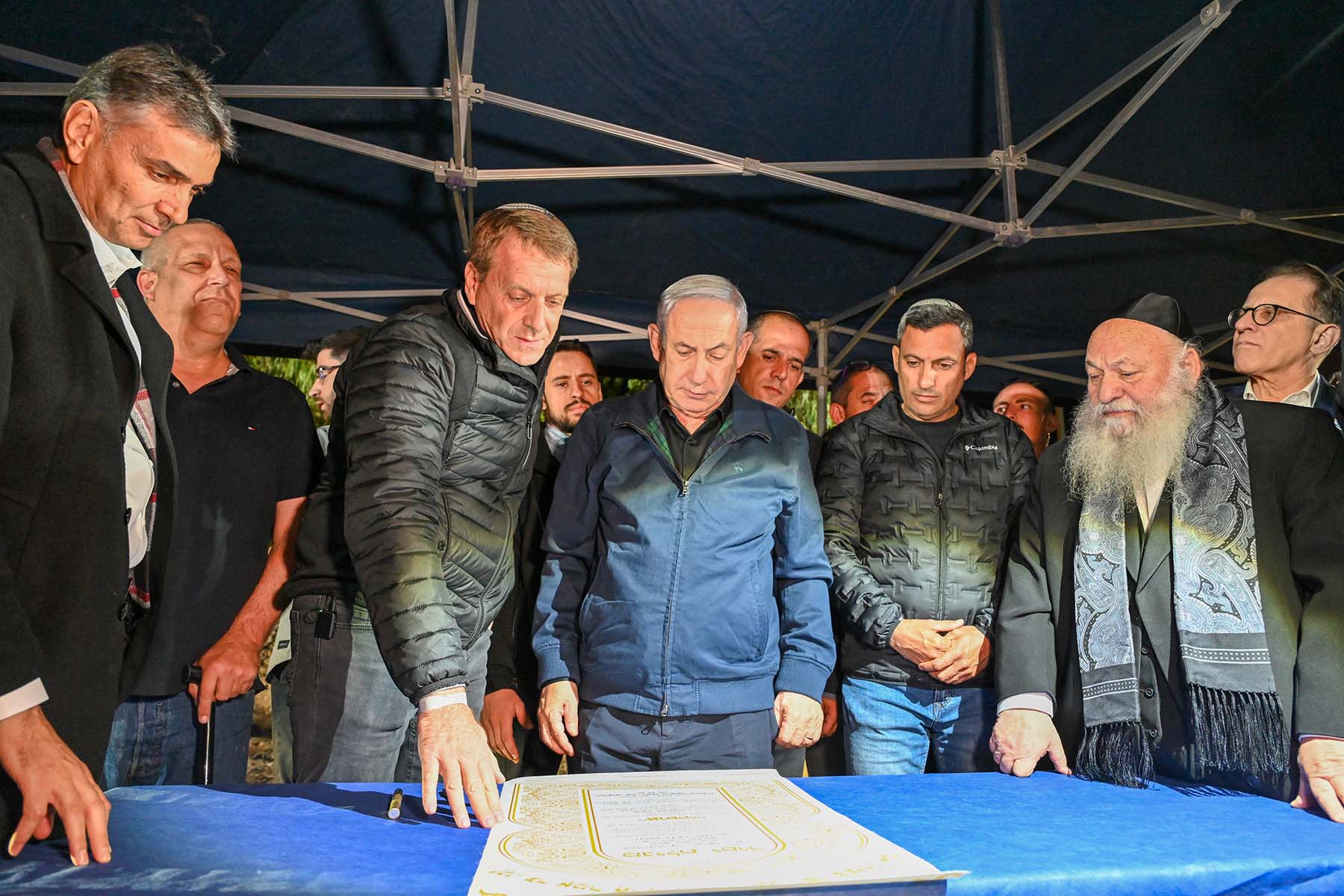
23 February 2024
Source: Arutz Sheva, February 23, 2024
After numerous requests from foreign and domestic sources, Israeli Prime Minister Netanyahu unveils a skeleton framework for Israel’s strategy for the Gaza Strip post-conflict; he emphasizes military goals, security measures, and civil restructuring. Before the application of a post war administration, Netanyahu affirms Israel’s immediate aims are to destroy Hamas and Islamic Jihad’s capabilities and recovering hostages. Interim Israeli plans involve unrestricted security operations, a security zone along the Israel-Gaza border, and measures to prevent terrorism. Netanyahu seeks to shut down UNWRA which was heavily involved in supporting and in engaging in the October 7, 2023, Hamas terrorist attack against Israelis and others. Long-term goals specifically reject international intervention in peace negotiations and unilateral recognition of a Palestinian state. Netanyahu did not stipulate a time frame for implementation of the civil restructuring, mention of who might be (in)eligible to serve in a future Gaza administration, and notably no intention for future Israeli settlement in Gaza.
Ken Stein, February 26, 2024
The Netanyahu Government’s Administrative Horizon for Postwar Gaza
23 February 2024
In the immediate time frame: The IDF will continue the war until its goals are achieved: The destruction of the military capabilities and governmental infrastructure of Hamas and the Islamic Jihad, the return of the hostages and the prevention of a threat from the Gaza Strip for a lengthy period of time.
In the interim period:
On the security level – Israel will maintain operational freedom of activity in the entire Gaza Strip, without a time limit, for the purpose of preventing the renewal of terrorism and thwarting threats from Gaza.
The security zone established in the Gaza Strip, in the area bordering Israel, will exist as long as there is a security need for it.
Israel will maintain a “southern closure” on the Gaza-Egypt border in order to prevent the re-intensification of terrorist elements in the Gaza Strip. The “southern closure” will operate, as much as possible, in cooperation with Egypt and with the assistance of the US, and will be based on measures to prevent smuggling from Egypt both underground and above ground, including at the Rafah crossing.
Israel will have security control over the entire area west of Jordan, including in the envelope of Gaza, to prevent the strengthening of terrorist elements in Judea, Samaria and the Gaza Strip and to thwart threats against Israel.
There will be a complete demilitarization in the Gaza Strip of any military capacity, beyond what is required for the needs of maintaining public order. The responsibility for realizing this goal and overseeing its existence in the foreseeable future is given to Israel.
On the civil level – as much as possible, the civil administration and responsibility for public order in the Gaza Strip will be based on local officials with administrative experience. These local entities will not be identified with countries or entities that support terrorism and will not receive payment from them.
A comprehensive de-radicalization program will be promoted in all religious, educational and welfare institutions in the Gaza Strip, as much as possible with the involvement and assistance of Arab countries which have experience in promoting de-radicalization in their territory.
Israel will work to shut down UNRWA, whose operatives were involved in the October 7 massacre, and whose schools educated to terrorism and the destruction of Israel. Israel will work to end UNRWA’s activities in the Gaza Strip and replace it with responsible international aid agencies.
The rehabilitation of the Strip will only be possible after the demilitarization is completed and the de-radicalization process begins. The rehabilitation programs will be financed and led by countries that are acceptable to Israel.
In the long term:
Israel outright rejects international dictates regarding a permanent settlement with the Palestinian Arabs. Such an arrangement will be reached only through direct negotiations between the parties, without preconditions.
Israel will continue to oppose the unilateral recognition of a Palestinian state. Such recognition in the wake of the October 7 massacre would give a huge, unprecedented reward to terrorism and prevent any future peace settlement.
